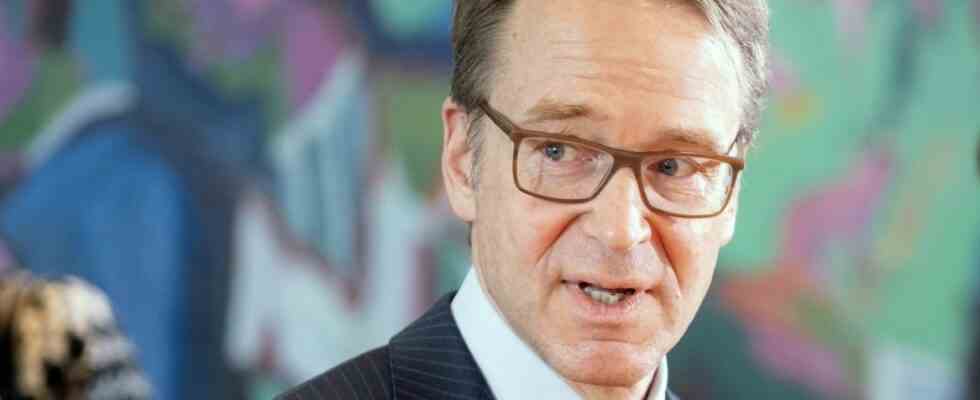Nobody in the financial world would have believed that Jens Weidmann would be retiring at the age of 54 when he surprisingly resigned as President of the Bundesbank and member of the ECB Council a good year ago. In this respect, speculation immediately made the rounds that he could, for example, become the head of the supervisory board at Deutsche Bank. Someone else took over this important post; it would also have been too early for him, because the Bundesbank actually writes a two-year term for its bosses cooling-offperiod before. During this time, they are not allowed to accept jobs in the financial sector, after all, the Bundesbank not only takes care of monetary policy, but also supervises banks – so without an appropriate “cooling off” phase, conflicts of interest could not be ruled out.
Now it went faster, apparently because an exception clause applies. According to this, former top central bankers of the ECB are allowed to switch to the financial sector after just one year if it is a position at a “significant or less significant credit institution” and possible conflicts of interest can be ruled out. Weidmann is to become the head of the Commerzbank supervisory board, the second largest German financial institution announced on Saturday. The former central banker would thus take on a control function. This circumstance also helps to shorten the deadline – it would be different if Weidmann were aiming for an operational board position. The personnel is to be decided at the Annual General Meeting on May 31st. After that, Weidmann must submit a request to the ECB Ethics Committee to shorten the cooling-off period.
Supervisory Board Chairman Helmut Gottschalk said that after the Annual General Meeting he would no longer be available as Chairman of the Supervisory Board for reasons of age. The 71-year-old suggested Weidmann as his successor in consultation with the Federal Ministry of Finance. With the former head of the Bundesbank, the bank “was able to win a highly respected personality in the financial sector for the candidacy for election to the supervisory board,” said Gottschalk, who only took over the chairmanship in April 2021 after his predecessor Hans-Jörg Vetter resigned due to illness . Before that, Gottschalk headed the supervisory board of the cooperative DZ Bank from 2010 to 2018 and was head of the Volksbank Herrenberg-Nagold-Rottenburg in the Black Forest for a long time.
According to the Federal Ministry of Finance, Gottschalk’s decision deserves “gratitude and respect”. Since the financial crisis, the federal government has held a 15 percent stake in Commerzbank and has recently become more involved in personnel matters under both Finance Minister Olaf Scholz (SPD) and Christian Lindner (FDP) than before. Weidmann is an ideal future candidate who has a great reputation on the international financial markets, according to ministry circles. “An excellent option from the point of view of the wealth interests of the citizens.” In fact, the personnel should be seen as a coup for Commerzbank. In the past, the bank had often received rejections from top-class candidates when it came to filling the position.
Not the first change by a central banker
Weidmann would not be the first former President of the Bundesbank to switch to the financial sector. After his resignation in 1991, the eloquent Karl Otto Pöhl was hired as a personally liable partner at the Cologne private bank Sal. Oppenheim. Weidmann’s predecessor, the economist Axel Weber, became head of the major Swiss bank UBS in 2012. Weidmann, former economic advisor to Chancellor Angela Merkel (CDU), headed the Bundesbank for ten years from 2011. He has been at odds with then-ECB President Mario Draghi since the ECB began buying euro-member government bonds.
The incumbent Commerzbank supervisory board chairman Gottschalk, however, as it had recently been said in supervisory board circles, would probably have liked to add another term to it. Criticism of him recently came not only from major shareholders. Managers also complained that Gottschalk interfered too much in the details of operational work. On the other hand, he treated other processes in a strangely superficial manner, such as the question of what joint responsibility board members had for a loss-making loan to the bankrupt company Wirecard. As a result, an employee shareholder had proposed at the general meeting that the Executive Board and the Supervisory Board be refused discharge.
On the other hand, the latest attempt at restructuring by Commerzbank boss Manfred Knof, who has been in office for almost two years, has so far been comparatively quiet. Also supported by higher interest rates, which help Commerzbank in the classic lending business, the bank is heading for a profit of more than one billion euros this year – a result that it has not achieved for many years. Since Knof took office, the share price has also risen significantly. At the same time, this raises the question of whether the federal government wants to have a permanent stake in the bank. At the beginning of his tenure, Lindner toyed with the idea of selling the federal stake, even if it meant making a loss. After all, state participation is accompanied by considerable conflicts of interest. The federal government had previously had it assured that the bank would continue to finance German SMEs cheaply as a thank you for the state aid. The money house followed suit, which was at the expense of the return. Recently, however, Lindner has moved away from itwanting to sell the Commerzbank stake.

